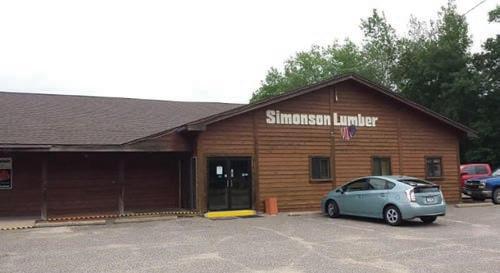
11 minute read
TRANSFORMING TEAMS
Implications from having employees work out of state
Among the many changes to “business as usual” forced upon companies during the COVID-19 pandemic is the reality of more employees working from home. Whether due to regulatory shutdowns or the requirement to self-quarantine or-isolate due to COVID-19 exposure or symptoms, many businesses have had to create solutions to allow employees to remote work in order to keep the business running.
While numerous solutions were quickly implemented to react to the ever-changing pandemic, employees and employers are now realizing the longer-term implications of these remote work options. Employers are having to
Q. We were required to offer employees paid time off under the Families First Coronavirus Relief Act (FFCRA) last year. Do I still need to?
A. While it is no longer mandatory for employers with fewer than 500 employees to offer this time off, it is voluntary. The Consolidated Appropriations Act signed by President Trump extended the accessibility and tax credits for the FFCRA through March 31, 2021, but made it voluntary to offer. The recently enacted American Rescue Plan Act extended FFCRA as a voluntary benefit and applicable tax credit offset through September 30, 2021, and it also made some revisions including: • expanding the covered reasons to include vaccine appointments and time off due to complications from receiving the vaccines; • reset the allotment of available time off (two-week/80hour of sick time and 10 weeks of paid family leave per employee) March 31, 2021; • increase the amount of credit available for employees offering paid family leave to $12,000; • increase the number of days self-employed individuals can use to calculate qualifying leave to 60 days; • increase time off for federal workers to 15 weeks; and • require employers to provide FFCRA to all employees without discriminating against a certain group.
Again, any FFCRA is voluntary as of January 1, 2021. However, providing employees with this paid time off (as well as related costs such as insurance premiums) is repaid to employers through the offset of payroll taxes. review and update normal employment procedures such as performance reviews and paid time off usage due to the new work-from-home reality.
However, employers who have employees who are temporarily working in a different state have even more implications to consider. Whether an employee usually commutes across state lines to come into the office or if they have had to temporarily relocate due to COVID-19 or financial considerations, employers need to follow employment laws in those states in addition to the state(s) in which the company is located. According to the American Institute of CPA’s, 47% of remote employees are unaware that laws vary by state and 70% did not know that working remotely may impact their tax filings.
In normal circumstances, an employer who hires an employee living and working in a different state has plenty of time to set up state-specific Workers’ Comp and unemployment insurance, file and pay state taxes, and learn the different employment laws. Given the emergency declarations and rapid decisions that had to be made during the pandemic, employers and employees are now realizing they have been subject to different laws this entire time.
Some states are making temporary exemptions for employees working remotely due to COVID-19 circumstances while others are requiring proper taxes be paid, Workers’ Comp and unemployment be maintained, and employment laws followed. Depending on where you and your employers are located, you may need to consider the following laws in the state(s) in which your employees are working to stay in compliance:
Employment laws: Every state has diff erent employment laws. Any employer must follow the applicable employment laws of the state in which the employee works, even if they diff er from the ones where the business is located. To further confuse what is applicable law, some state laws apply to all employees regardless of the number of employees in the state while others require a minimum number of employees working in that state to qualify. Here are some of the most common laws which diff er state-to-state: • Protected groups vary among all the states. While some groups are protected in every state because of federal law, other groups may be protected in a city, county, or state where an employee works while not being protected where the business is located. While no employee should be discriminated against for any reason, employees may have more protections and available courses of action in their remote work location which may increase your exposure to liability. • Paid sick leave has become common in many states, counties, and cities. Many of these laws apply to any employee working in that location, regardless of if the business is located there. Having to off er leave to certain employees may impact overall paid time off policies. • Paid family leave is currently or will soon be off ered in nine states (California, Colorado, Connecticut, Massachusetts, New Jersey, New York, Oregon, Rhode Island, and Washington) as well as in Washington, D.C. While many of these only cover employees of large businesses, some cover all employees and will apply to employees who may be working remotely in that state. • Minimum wage varies widely among states, some being much higher than the federal $7.25 per hour. State law also varies regarding tip credit and minimum salary thresholds for exemptions. • Overtime also diff ers in some states. While most follow the federal time-and-a-half for all hours worked over 40 in a workweek, some (including Alaska, California, Colorado, and Nevada) have more stringent overtime requirements. • Posters and notices will be different state-to-state. While some do not need to be posted in an employee’s house if that is their workplace, others will need to be provided to employees in compliance with state law. Federal posters will also need to be made available to employees who are working remotely.
“Tax nexus” creation: In tax law, a “tax nexus” refers to a company’s presence in a state entitling the state to charge taxes and requiring the company to pay them. Typically, a business is considered active in a state if they have a physical location, resident employees working in the state, property in the state, and/or employees regularly soliciting business there (salespeople). Businesses meeting any of these criteria may be required to pay applicable taxes to that state.
Payroll tax requirements: Normally taxes must be paid in any state(s) in which the employee performs work (“physical presence”). Usually they would complete the state’s equivalent to a W-4 and state taxes are withheld from each paycheck. However, various exceptions may impact this. Some states (such as Pennsylvania and New Jersey) allow withholding tax reciprocity with neighboring states while others (such as Connecticut for employees working in New York City) offer an off-setting tax credit. Some states (such as Arizona) allow employees to work a limited number of days before having to pay taxes while others (such as New York) require employees to pay taxes if they work even one day in the state. The stay-at-home mandates issued throughout the pandemic add further complexities since employees and employers did not willingly create this work-across-state-lines situation.
Unemployment Insurance: In conjunction with other payroll taxes, employers need to have unemployment accounts established in each state in which an employee works so they can fi le properly if needed.
Workers’ Compensation: All states have their own Workers’ Compensation laws and systems. Businesses usually need to establish Workers’ Comp insurance accounts in each state in which they have employees working. If an employee is injured in a work-related accident while working from home, this will still be your responsibility, and the state will require proper coverage.
Work location permitting: Some local agencies require certain businesses to have permits for all locations where work is being done. If employees are regularly performing work from home, they may need to obtain business permits to keep you in compliance.
Given the wide variety of implications created by remote workers, we recommend consulting with your HR and accounting departments and/or advisors to ensure compliance. We also recommend checking with the zoning departments in the city and/or county where your employees are working to verify you are meeting all zoning and licensing requirements.

Paige McAllister, SPHR Affi nity HR Group contact@affi nityhrgroup.com

888-807-2580
Bend, OR www.pelicanbayfp.com
DISTRIBUTION LOCATIONS Colton / Fontana / Modesto / Salinas / Stockton, CA PRODUCTS & SERVICES Framing Lumber / Pallet Stock / Industrial Lumber / Softwoods Hardwoods / Cedar / Fencing / Decking / Redwood Custom Cut Stock / Treated Lumber / Tile Battens 3-Hole & Slotted Vents / Custom Cutting / Remanufacturing Heat Treating / Fire & CCA Treating

The AZEK Co. will open a new plant in Boise, Id., to produce TimberTech composite decking for the western U.S.
Construction on the facility, which will be a retrofit of an existing building, will begin this year. It is expected to be fully operational in 2022, creating at least 80 jobs over the next year, followed by about 100 more over the next two to three years.
The facility is a key part of AZEK’s previously announced $180-million capacity expansion program.
Neiman Restarts Gilchrist Mill
Neiman Enterprises, Hulett, Wy., is improving systems as it restarts Gilchrist Forest Products in Gilchrist, Or. Neiman recently acquired the mill from Interfor, with plans to revive the site and inject capital to improve systems and tailor the site for their line of products.
The sawmill is replacing a dated Inovec Dynavision M6 scanner with a new USNR trimmer optimizer and scan frame fitted with a BioLuma 2900L scanning system. The sawmill is also installing a new USNR optimization system for the existing end-dog carriage system, providing full 3D imaged solutions.
The sawmill will also receive a new Stick-N-Fork Stacker system. In addition to being the fastest automatic sticker stacker on the market, the StickN-Fork Stacker offers a host of other capabilities and options, including boxing load forks, random-width pullback, bad stick error detection, and more.
The planer mill will replace an existing 180-degree turn with two shorter 90-degree turn sections. Turn chains stretch over time & can get out of phase, so the new equipment will be more reliable and maintenance friendly.
The Gilchrist mill complements Neiman’s existing milling operations in Wyoming, South Dakota, and Colorado. It produces 1x4 through 1x12 ponderosa pine and lodgepole pine boards, as well as 6/4 shop. It allows the company to further expand its customer base for high-quality ponderosa pine lumber products.
Gregson Tourney Moved to Fall
Southern California Hoo-Hoo Club No. 117 has postponed its annual Don Gregson Memorial Golf Tournament from April to Oct. 8 at Los Serranos Country Club, Chino Hills, Ca.
“COVID has not relaxed enough for Los Serranos to guarantee full usage and without that we risk not being successful,” explained spokesman Mike Nicholson. “I very much hope this date will stand, and going forward the tournament will be held in the month of October.”
Roseburg Gets SFI Certified
Roseburg, Springfield, Or., has introduced Sustainable Forestry Initiative (SFI) certification for select products manufactured at its Oregon and California facilities.
Roseburg owns and manages 158,000 acres of SFI Certified timberland in North Carolina and Virginia. The company recently expanded its commitment to include SFI Chain of Custody and SFI Fiber Sourcing certifications at its western manufacturing locations.
“The values of the Sustainable Forestry Initiative closely align with our own, including a commitment to sustainable wood production, forest health, recreation, and safety,” said president and CEO Grady Mulbery. “We are proud to offer our clients and their customers this additional assurance that Roseburg’s high-quality products are a sound environmental choice.”
On request, Roseburg now offers SFI certified lumber, timbers, pulp, fuel chips, plywood sheathing and underlayment, SkyPly hardwood plywood, Medite MDF, and SkyBlend particleboard.

NEWS Briefs
Spenard Builders Supply
has temporarily closed in Fairbanks, Ak., after overnight snowfall March 17 caused part of its roof to collapse.
Tum-A-Lumber, Hood River, Or., and Lakeside Lumber ,
Tualatin, Or., are the newest stocking dealers of MOSO Bamboo products.
Zaremba Hardware opened
its third location, Santa Cruz Ace Hardware, March 8 in Santa Cruz, Ca.
Minot Builders Supply ,
Billings and Great Falls, Mt., is now distributing Boral TruExterior siding in the upper Midwest and Rockies.
Minot is also supplying Barrette Outdoor Living’s DuraLife deck-
ing to Montana, to complement its distribution of Barrette’s RDI railings.
Neiman Enterprises, Hulett, Wy., is permanently closing its Rushmore Forest Products mill in Hill
City, S.D., due to lack of timber.
Associated Materials is add-
ing a second shift at its vinyl window facility in Fife, Wa.
Weyerhaeuser, Seattle, Wa., has agreed to purchase 69,200 acres of Alabama timberlands from Soterra, a subsidiary of Greif, Inc., for $149 million.
U.S. Fence Solutions Co. has sold Binford Supply to Fencing Supply Group, a new investment platform formed by The Sterling Group.











